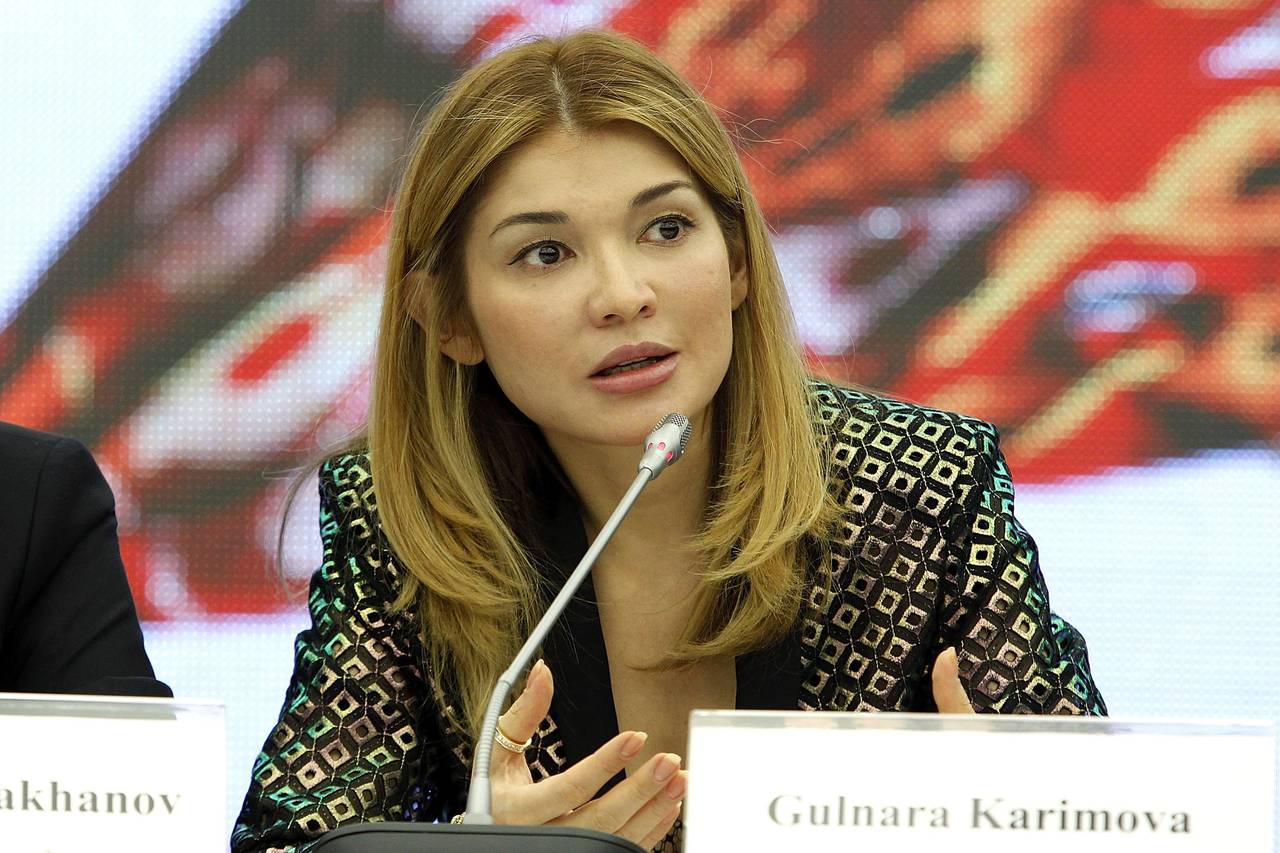U.S. authorities are asking European counterparts to seize about $1 billion in assets related to a wide-ranging criminal probe of alleged corruption by three global telecom companies and intermediaries close to the daughter of Uzbekistan’s president, according to court documents and people with direct knowledge of the criminal investigation.
The effort is one of the biggest recent moves by U.S. authorities targeting what prosecutors believe are the spoils of alleged corrupt activities overseas. The U.S. Justice Department and Securities and Exchange Commission probes were disclosed last year, and related investigations by European counterparts have been under way for several years. But the recent move by the U.S. to seize assets sheds new light on the magnitude of the corruption American prosecutors believe took place.
U.S. prosecutors believe Amsterdam-based Vimpelcom Ltd., Mobile TeleSystems PJSC of Russia and Sweden’s TeliaSonera AB funneled hundreds of millions of dollars to businesses controlled by Gulnara Karimova, the elder daughter of Uzbek President Islam Karimov, in an effort to secure wireless frequencies and other deals in that country, according to court documents and people with direct knowledge of the probe.
No individual or company has been charged as part of the U.S. and European investigations. The three companies disclosed last year they were the focus of investigations by the Justice Department and the SEC in connection to their operations in Uzbekistan. They declined to comment on the corruption accusations, saying only that they were cooperating with U.S. and European judicial authorities. Ms. Karimova couldn’t be reached for comment.
In recent years, American law-enforcement officials have been expanding their reach—targeting alleged corruption not just by U.S. companies operating overseas, but by foreign companies and individuals. The U.S. Justice Department also has been aggressively targeting U.S.-based assets it believes are the spoils of overseas corruption.
At the same time, it has worked with foreign counterparts to freeze funds held overseas, and it is increasingly spearheading large, complex international corruption probes. In May, for example, U.S. prosecutors charged nine current and former officials at FIFA, the Switzerland-based world soccer governing body, on broad corruption charges.
As for the agencies having jurisdiction in the Uzbekistan probe, Vimpelcom and MTS securities trade in the U.S. TeliaSenora, which delisted its securities about 10 years ago, could be subject to U.S. oversight if its deals involved the U.S. financial system, experts say.
As part of the far-reaching telecom probe, the U.S. Justice Department filed a complaint in June with a New York court as a step toward asking Irish, Belgian and Luxembourg authorities to restrain about $300 million held in bank accounts in those countries.
In March, U.S. authorities asked Sweden for assistance in seizing another $30 million, deposited at a Swedish bank, a sum they say is also related to the alleged corrupt activity. U.S. officials have taken similar steps in Switzerland to freeze some $640 million, including a lake-side villa, according to the documents and the people familiar with the matter.
The U.S. investigation "has revealed that Vimpelcom, MTS and TeliaSonera paid bribes to Uzbek officials to obtain mobile telecommunications business in Uzbekistan,” the Justice Department wrote to Swedish prosecutors in a March 20 letter reviewed by The Wall Street Journal.
A Justice Department official confirmed U.S. authorities aimed to seize the $300 million in Ireland, Belgium and Luxembourg. The official declined to comment on U.S. actions related to the investigation in Sweden and Switzerland. The SEC declined to comment.
At the heart of the case, U.S. prosecutors believe, is Ms. Karimova. Prosecutors believe she is the beneficial owner of the roughly $1 billion fortune scattered across the continent, according to the court documents and people familiar with the matter.
The bribery accusations first surfaced in 2012, when Swiss authorities detained associates of Ms. Karimova, and Swedish reporters broadcast an investigative report about TeliaSonera’s activities in Uzbekistan. Since then, Swedish, Swiss and Dutch authorities have been looking into some of the ties between Ms. Karimova and certain telecommunication companies.
In 2013, TeliaSonera Chief Executive Lars Nyberg resigned amid criticism of the company’s investment in a telecom license in Uzbekistan. Mr. Nyberg, in stepping down, said an outside law firm’s review of allegations of corruption had "not found anything to support the allegations that TeliaSonera committed bribery or participated in money laundering.” He conceded the company "should not have gone ahead without learning more about the identity of our counterparty” in Uzbekistan.
The U.S. intervention could help speed up the far-reaching international probe, which some European magistrates say has been bogged down by the complexities of cross-border judicial cooperation. The Justice Department has been casting a wider net, targeting Ms. Karimova as well as all three telecommunications companies.
Ms. Karimova described herself as a "poet, mezzo soprano, designer and exotic Uzbekistan beauty” when she released a song album in the U.S. in 2012. Last year, an Uzbek news website reported that Ms. Karimova had been put under house arrest in Uzbekistan.
Grégoire Mangeat, a court-appointed lawyer representing Ms. Karimova in Switzerland, said he has had no contact with his client, and that his numerous letters to Uzbek authorities have been left unanswered.
A representative for the Uzbek embassy in London didn’t immediately respond to a request for comment. Emails to the office of the country’s attorney general were left unanswered. Representatives for the office of the Uzbekistan president didn’t immediately respond to an emailed request for comment.
The Uzbek telecommunications market will be worth an estimated $1.8 billion in 2015, having grown more than tenfold over the last decade, according to data compiled by Michael Ruddy of U.S.’s Terabit Consulting.
U.S. and European investigators believe that between 2004 and 2011, Ms. Karimova helped TeliaSonera, Vimpelcom and MTS gain wireless frequencies and blocks of phone numbers to operate in landlocked Uzbekistan, according to the court documents, regulatory filings and people familiar with the investigations. In exchange for access to the Central Asian market of nearly 30 million people, the three companies allegedly paid bribes to a web of front companies run by intermediaries who were close to Ms. Karimova, according to the documents and people familiar with the matter.
The front companies, U.S. and European prosecutors believe, had no authority to award or trade wireless frequencies, something that was the responsibility of department of licensing within Uzbekistan’s ministry of information technology and communication. An official with the department declined to comment.
U.S. prosecutors believe TeliaSonera, MTS and Vimpelcom, relied on similar transactions to execute the alleged bribes in Uzbekistan. They would sell stakes in their Uzbek operations to front companies linked to Ms. Karimova, and later buy those stakes back at significant premiums, according to regulatory filings and court documents.
One of the main recipients of alleged bribes paid by the telecoms carriers was Takilant Ltd., a company registered in Gibraltar in 2004. In one instance, in June 2007, Vimpelcom, which counts Russia’s Alfa Group among its largest shareholders, sold a 7% interest in its Uzbek cellphone firm Unitel to Takilant for $20 million, according to court documents and regulatory filings. In September 2009, Vimpelcom bought back the 7% stake for $57.5 million.
Takilant’s sole shareholder and director was Gayane Avakyan, an Uzbek national born in 1983 who was close to Ms. Karimova, according to the documents and people familiar with the matter. Long business associates in Tashkent, Uzbekistan’s capital, the two women were spotted together at fashion shows in Paris and elsewhere.
According to Uzbek media reports, which U.S. investigators refer to in their filings, Ms. Avakyan was arrested at Ms. Karimova’s house in Uzbekistan in February 2014, and subsequently sentenced to six years in prison. Ms. Avakyan couldn’t be reached. A court-appointed lawyer for Ms. Avakyan in Stockholm, Tomas Rothpfeffer, said he has had no contact with his client.
(Wall Street Journal)
www.ann.az
Follow us !











